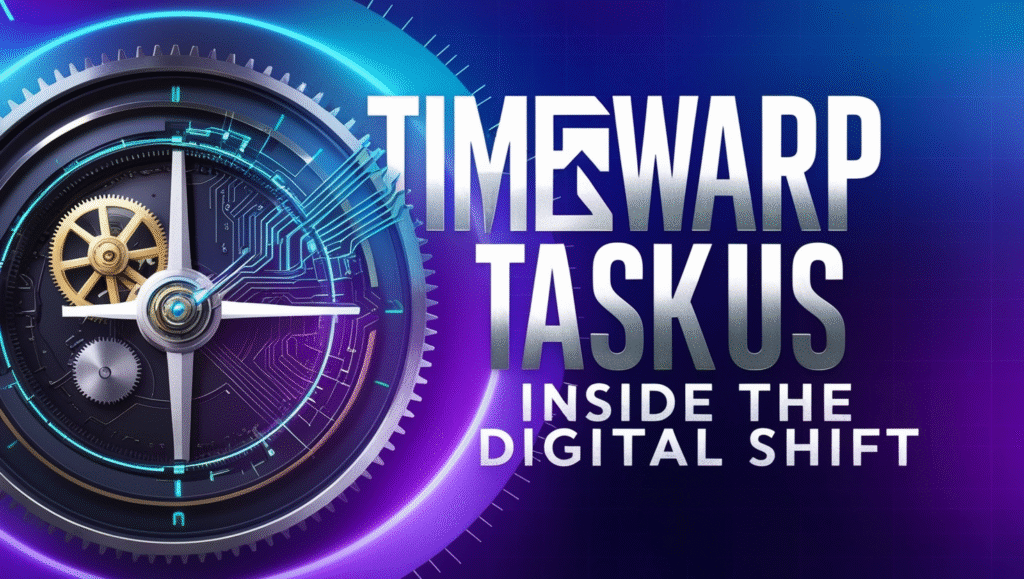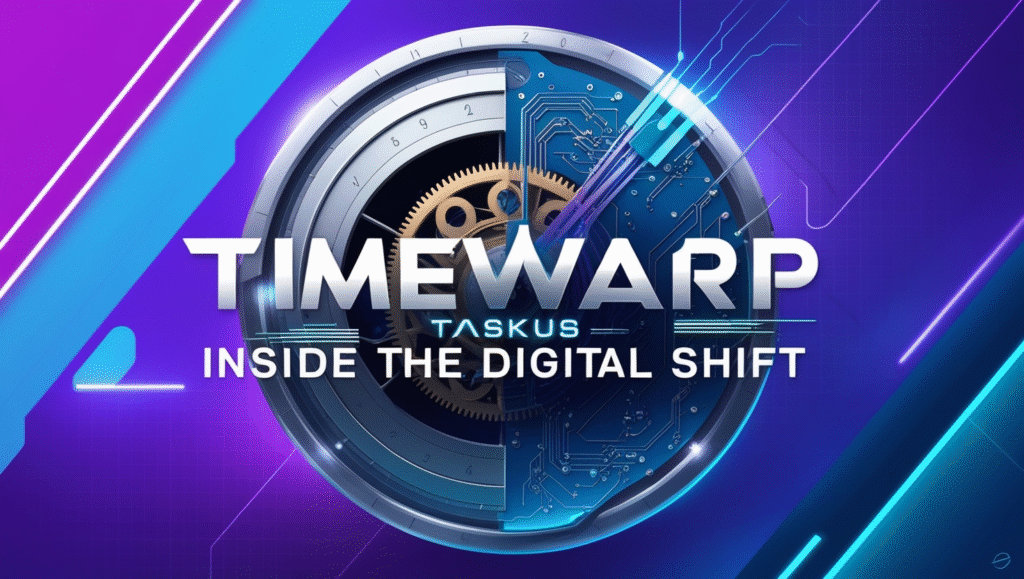Introduction
In today’s fast-moving digital world, the way people work has been changing faster than ever before. Technology, outsourcing, and remote jobs have created what many call a “timewarp” in how we see work and productivity. When I first heard about Timewarp TaskUs, the phrase caught my attention immediately. It sounded futuristic, almost like something from a sci-fi movie. But as I learned more, I realized it reflects a very real shift in the workplace—how companies like TaskUs are reshaping the rules of business process outsourcing (BPO), remote work, and digital operations.
If you’ve never heard of TaskUs before, let me simplify it for you. TaskUs is a global outsourcing company that supports big brands with customer service, back-office work, content moderation, and digital transformation. It has a reputation for being different: focusing heavily on employee culture, mental health, and innovative ways of handling tasks. When the term “timewarp” gets linked with TaskUs, it often refers to how quickly work culture and digital systems are shifting, almost as if we’ve skipped forward in time.
In this article, I’ll walk you through what timewarp TaskUs really means, why it matters in the outsourcing and digital industries, and how it connects to both businesses and employees like me and you. Along the way, I’ll share some of my own insights and experiences working in digital spaces that feel like they’ve been “timewarped” into the future.
What Does “Timewarp TaskUs” Mean?
The phrase “timewarp TaskUs” may sound unusual at first, but it perfectly describes the rapid digital acceleration happening in companies like TaskUs. Traditionally, outsourcing companies were viewed as call centers—rows of people answering phones in cubicles. But in the past few years, that picture has completely changed.
The “timewarp” reflects how outsourcing has evolved:
- From physical offices to remote-first setups.
- From routine customer calls to handling AI, data moderation, and digital platforms.
- From a focus on cheap labor to a focus on employee experience and culture.
When I read about TaskUs, I was impressed by how it places employees at the center of this transformation. Instead of just pushing for maximum output, TaskUs emphasizes building an environment where employees feel valued. This is a major shift, and for someone like me who has worked in digital spaces before, it feels like we’ve leapt ahead in time compared to old outsourcing models.
TaskUs and the Digital Workplace

TaskUs is not just another BPO company. It has become a symbol of the future of work. What makes it special is the way it integrates technology with human creativity. The “timewarp” here is about how the workplace has shifted:
- Remote work has become normalized.
- Employees work across different time zones without the old rigid schedules.
- Digital communication tools have replaced most physical office interactions.
I remember the first time I worked with a remote team across three different countries. At first, it felt overwhelming—how could we manage deadlines and communication when everyone was awake at different hours? But gradually, I realized it was like a timewarp. The old idea of “9 to 5 in one office” didn’t exist anymore. And companies like TaskUs have mastered this by building systems where global teams can function smoothly, no matter the time zone.
The Human Side of TaskUs Culture
One of the most surprising things about TaskUs is its employee culture. Most people assume outsourcing is about strict rules, robotic tasks, and high stress. But TaskUs took a completely different route. Their model highlights mental health, wellness, and employee engagement.
This is where I feel the timewarp effect the most. A few years ago, mental health in workplaces was rarely discussed. Employees were expected to just “deal with it.” But now, TaskUs and similar companies openly provide mental health resources, stress management tools, and wellness programs.
From my personal perspective, this change is huge. I remember when I was juggling deadlines in a traditional office setup. Burnout was common, and no one even acknowledged it. Now, seeing companies like TaskUs normalize wellness support feels like we’ve fast-forwarded into a future where people—not just profits—matter.
Timewarp in Outsourcing Trends

The outsourcing industry itself has gone through a major timewarp. Back in the early 2000s, outsourcing was about cost-cutting—companies sent tasks abroad to save money. But now, it’s about value creation. TaskUs is part of that shift. Businesses don’t just want cheap labor; they want skilled teams that can handle digital transformation, customer experience, and content moderation at scale.
For example, think about how much social media content is uploaded daily. Millions of photos, videos, and posts flood the internet every hour. Someone has to moderate that content to filter out harmful or inappropriate material. TaskUs has become a key player in this area, combining human judgment with AI tools. This is a completely different world from the outsourcing industry I first heard about years ago. It feels like we’ve skipped 20 years of development in just 5.
Conclusion
The idea of Timewarp TaskUs is more than just a catchy phrase—it reflects the massive shift in how we see work, outsourcing, and digital transformation today. In just a short period of time, TaskUs has shown the world that outsourcing is not about cheap labor or repetitive tasks anymore. Instead, it’s about blending technology with people, creating a workplace that values mental health, and helping global brands adapt to the digital-first era.
For me personally, learning about the changes in TaskUs felt like watching the future arrive early. The way the company integrates remote work, wellness, and innovation makes it stand out as a leader in the industry. It shows us that the workplace can evolve into something better, where employees thrive and businesses still succeed.


